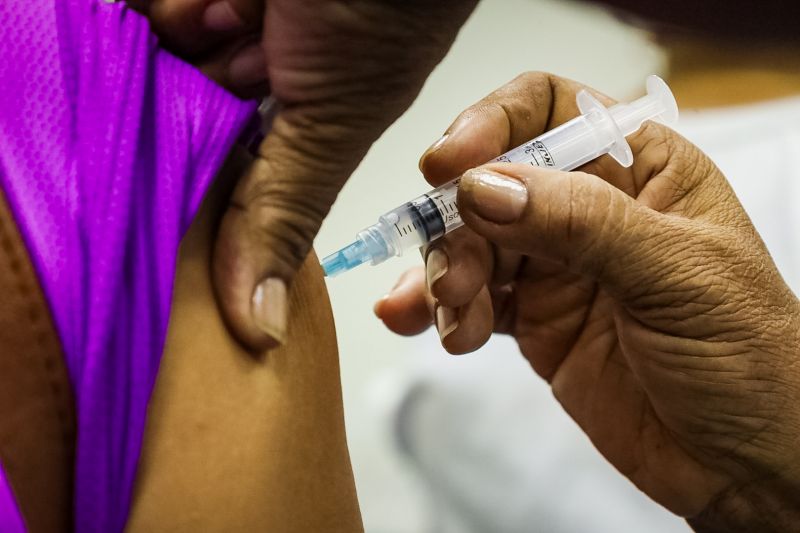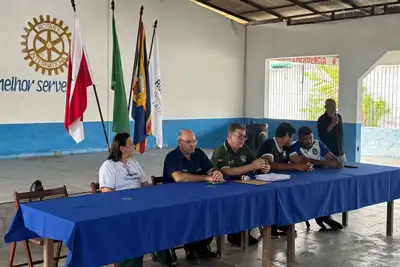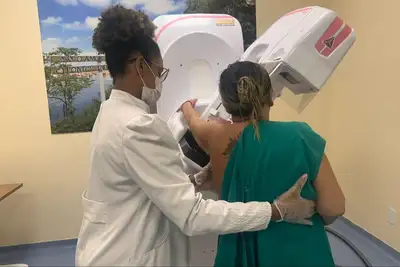State reinforces actions for prevention and early diagnosis of viral hepatitis
Sespa mobilizes health units throughout the State with free testing, educational actions, and specialized care
The State Coordination of Viral Hepatitis (CEHV) of the State Department of Public Health (Sespa) highlights the importance of the "Yellow July" campaign, as part of the mobilization that marks the month of intensification of prevention and control of hepatitis, commemorating July 28, World Hepatitis Day.
Throughout the year, Sespa, through the Department of Control of Communicable Diseases, offers rapid tests and condoms (external and internal) to the health departments of the 144 municipalities in Pará. The materials are directed towards the development of health and prevention actions carried out by Regional Centers and municipal public health agencies.
Alignment - The campaign program for this year, so far, will be developed in three phases, with testing and meetings for technical alignment. The "Yellow July" campaign represents the effort to combat the underreporting of hepatitis cases and to expand access to testing and early diagnosis, through the encouragement of vaccination against type B – offered free of charge by the SUS (Unified Health System) – reinforcing assistance and treatment for the most dangerous types of the disease: B and C.
The coordinator of Viral Hepatitis at Sespa, Caroline Figueiredo, emphasizes that, being a silent disease, the main objective of the campaign is the active search for people who do not know they have the viruses and need treatment soon to avoid being surprised by the consequences of a late diagnosis, such as cirrhosis or liver cancer. Rapid diagnosis also prevents the spread of hepatitis.
This year, emphasis will be given to the male audience, which still accounts for the highest number of positive cases. A first step in this direction was taken on June 21 of this year, when fans of Remo and Paysandu - football clubs from Pará - were able to access rapid tests during the game held at the Olympic Stadium of Pará, the Mangueirão. The initiative was coordinated by Sespa, with support from the Health Project Throughout Pará, and in partnership with the Municipal Government of Belém.
Diagnosis - Hepatitis is an inflammation of the liver cells and can be caused by viruses A, B, C, D, and E. Diagnosis is made through blood tests.
Infections by viruses B and C usually do not present symptoms. Due to their silent nature, they can evolve into chronic forms, as well as the development of fibrosis, hepatic cirrhosis, and hepatocellular carcinoma.
Classified as a chronic disease, Hepatitis C is a disease without apparent symptoms that can remain in the body for up to 20 years without manifesting. The disease can be transmitted through contaminated needles and syringes or through unsterilized sharp objects.
Testing - Sespa recommends that municipalities intensify mobilizations with the offer of free testing, an essential strategy for the active search for silent hepatitis patients. Regardless of age group, people who have had piercings and tattoos; those who received blood transfusions before 1993; and healthcare professionals can seek the service.
In Pará, anyone who wants to know if they have hepatitis should seek the nearest Basic Health Unit to initiate the care flow through the SUS. If treatment is needed, the person is referred to one of the 41 Specialized Care Services (SAE) in HIV/Viral Hepatitis spread throughout Pará. In more complex cases, the patient can also be referred to the Santa Casa de Misericórdia Foundation of Pará, in Belém, which specializes in treating advanced liver diseases and liver transplants.
Through the CEHV, Sespa also intensifies actions against the disease in the State, through educational activities for prevention and health services provided in partnership with municipalities, especially in hard-to-reach communities, such as riverside and indigenous populations.
Frequency - Due to the encouragement of early diagnosis, hepatitis cases in Pará fluctuate among the most common types - A, B, and C - according to the most recent records from the Notification of Diseases Information System (Sinan NET).
For type A disease, 25 cases were recorded in 2024, and six between January and June of this year. Confirmed cases of Hepatitis B totaled 506 last year, and another 142 in the first six months of 2025.
According to Sinan NET, cases of Hepatitis C in Pará totaled 360 occurrences in 2024, and 97 this year, according to data updated until June 10.
Regarding deaths caused by the disease, the most fatal are complications caused by types B and C. In the historical series between 2020 and 2024, data from the Mortality Information System (SIM) confirm that 237 people died due to hepatitis, with 64.28% of this total caused by type C of the disease.
Campaign program for "Yellow July":
July 10 (Thursday): Fifth technical meeting of the Specialized Care Services (SAEs) in Viral Hepatitis, at the Sespa auditorium, from 8 am to 5 pm. 185 spots will be available, with 100 reserved for Primary Care professionals from Belém.
July 17 (Thursday): Testing action held by the Santa Casa de Misericórdia Foundation, at Parque Shopping, with rapid testing (Hepatitis B, Hepatitis C, HIV, and Syphilis) for the population, from 10 am to 9 pm.
July 30 (Wednesday): Testing action at the Santa Casa de Misericórdia Foundation, conducted by the institution itself, offering rapid testing (Hepatitis B, Hepatitis C, HIV, and Syphilis) for employees, patients, companions, and the general population, from 8 am to 5 pm.










